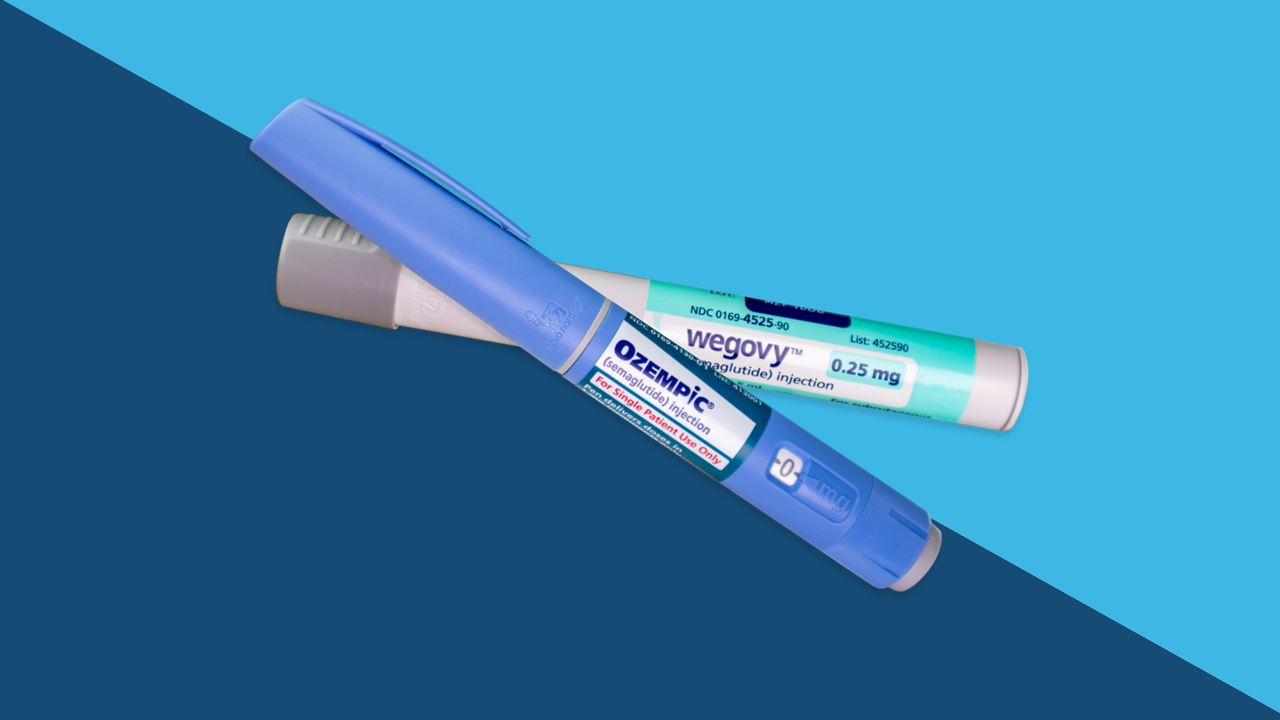Initial Study Finds Weight Loss Drugs Show Promise for Addiction Treatment
While medications for addiction treatment are proven safe and effective, the options available are limited. The FDA has only approved three medication classes specifically for treating alcohol use disorders (AUD) and three for substance use disorders (SUD). Comparatively, there are eight medication classes for high blood pressure and 10 for high cholesterol.
A recent study may expand these lists to include GLP-1 receptor agonist medications, including Ozempic, Wegovy, and Mounjaro. GLP-1 medications are currently used to treat type 2 diabetes and obesity because they help regulate blood sugar levels and appetite.
For diabetes and weight management, GLP-1 medications simulate the action of glucagon-like peptide-1 (GLP-1) hormones. They also work similarly to opioid agonists in how they influence the brain’s reward pathways to stop cravings.
Potential Treatment Benefits
Until more clinical trials are conducted, this research is purely experimental. But there are a number of potential benefits GLP-1 medications could bring to addiction treatment.
- Reduction in Cravings & Use: These medications appear to reduce the rewarding effects of substances like alcohol and opioids. The study shows a 40 to 50% reduction in opioid and alcohol use, respectively.
- Reduce Dopamine Surges: Since GLP-1 medications can adjust brain reward pathways, they may be able to lower dopamine surges associated with addiction. This could improve a patient’s impulse control, making substances less rewarding.
- Dual Benefits: For individuals with co-occurring diseases including obesity or Type 2 diabetes, these drugs may offer the dual benefits of weight management and addiction treatment
The study shows a 40 to 50% reduction in opioid and alcohol use.
Initial Study Challenges & Risks
Like any initial study, more rigorous research must be done to confirm the safety and efficacy of these medications before using them to treat addiction. While the results are promising, there are multiple issues to address.
- Study’s Limited Scope: The initial study was limited in its scope and as of yet there have been no large-scale randomized controlled trials to confirm their safety and efficacy for addiction treatment.
- Side Effects & Interactions: There is a lack of detailed understanding of how these medications might cause side effects, interact with other treatments for addiction, or affect individuals with complex health conditions.
- Ethical & Practical Concerns: Relying on expensive medications for addiction could widen healthcare gaps, as access might be limited for underserved populations.
Ongoing clinical trials are underway with the hopes of gaining regulatory approval for GLP-1 medications to treat AUDs and SUDs. Until then, addiction medicine can rely on the established, FDA-approved medications available as part of a comprehensive treatment plan.
Get State-of-the-Art Treatment at BrightView
BrightView’s professionals constantly study behavioral health developments and technologies to ensure our patients get the best care possible. To learn more about how we can help you or a loved one start recovery at our outpatient MAT clinics, call us today at 888.501.9865.
